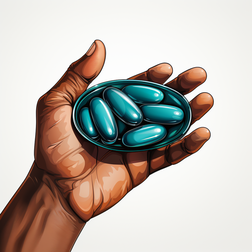Interactions of cialis with other medications and supplements.
- Cialis: An Overview and Its Uses
- Cialis and Antibiotics: Interactions to Note
- How HIV Medications and Protease Inhibitors Interact with Cialis
- Interactions of Cialis with Medications for Benign Prostatic Hyperplasia
- Recognizing and Managing Potential Side Effects, Including Priapism
- Interactions of Cialis with Common Medications
- The Imperative Role of a Healthcare Provider
- PDE5 Inhibitors and Their Effect on Blood Pressure
- St.
- The Role of Doctors and Pharmacists in Preventing Drug Interactions
- Does Vitamin D Interact with Cialis?
- Does Caffeine Interfere with Cialis?
- Taking Supplements with Tadalafil
- Cialis and Herbal Supplements
- Common Interactions between Cialis and Other Medications
- Can You Take Vitamin B12 with Cialis?

Cialis: An Overview and Its Uses
Cialis is a medication primarily used for treating erectile dysfunction and benign prostatic hyperplasia. It falls under the category of drugs known as PDE5 inhibitors. These drugs work by relaxing the muscles and increasing blood flow to certain areas of the body, such as the penis, to facilitate an erection.
Cialis and Antibiotics: Interactions to Note
Some antibiotics, including clarithromycin, erythromycin, and rifampin, can interact with Cialis. These antibiotics can affect how Cialis is metabolized in the body, potentially leading to higher levels of Cialis in your blood. This can increase the risk of side effects. It's crucial to speak with a healthcare provider before combining these antibiotics with Cialis.
How HIV Medications and Protease Inhibitors Interact with Cialis
Certain HIV medications, including protease inhibitors, can interact with Cialis. These medications can increase the level of Cialis in the bloodstream, which could amplify its effects and side effects. Consult your healthcare provider if you are on HIV medication and considering Cialis use.
Interactions of Cialis with Medications for Benign Prostatic Hyperplasia
Cialis can interact with medications for benign prostatic hyperplasia, such as doxazosin and tamsulosin. These drugs, like Cialis, also act on the muscles in the prostate and bladder. The concurrent use of these medications may lead to a significant drop in blood pressure, causing symptoms like dizziness and fainting.
Recognizing and Managing Potential Side Effects, Including Priapism
Cialis can cause a range of side effects, including headache, indigestion, back pain, and a stuffy or runny nose. A rare but serious side effect is priapism, a condition in which an erection lasts for more than four hours. If not treated promptly, priapism can cause permanent damage to the penis. Immediate medical attention is required if priapism occurs.
Interactions of Cialis with Common Medications
Cialis can interact with several common medications including amlodipine, lisinopril, and metoprolol. These medications are often prescribed for conditions such as high blood pressure and heart disease. Combining Cialis with these medications can potentially lead to a dangerous drop in blood pressure.
The Imperative Role of a Healthcare Provider
Due to the complex interactions between Cialis and various medications, it's paramount to consult a healthcare provider before starting Cialis treatment. A healthcare provider can help evaluate the potential risks and benefits and adjust dosages or treatment plans accordingly.
PDE5 Inhibitors and Their Effect on Blood Pressure
As PDE5 inhibitors, medications like Cialis can lower blood pressure by dilating blood vessels. While this is beneficial for treating erectile dysfunction and benign prostatic hyperplasia, it can be risky if combined with other medications that have similar effects on blood pressure.
St.
John's Wort and Its Potential Interactions with Cialis
St. John's wort, a supplement commonly used for depression, can potentially interact with Cialis. It can speed up the metabolism of Cialis, leading to lower levels of the medication in the blood, and reducing its effectiveness.
The Role of Doctors and Pharmacists in Preventing Drug Interactions
Doctors and pharmacists play a critical role in identifying and preventing potential drug interactions. It is important to share your full medical history and current medications, including supplements, with your healthcare provider to avoid potential interactions.
Does Vitamin D Interact with Cialis?
Vitamin D does not typically interact with Cialis. However, individual responses can vary, and it's always best to consult a healthcare provider when adding supplements to your regimen.
Does Caffeine Interfere with Cialis?
Caffeine does not typically interfere with Cialis.
Still, excessive caffeine intake can lead to increased blood pressure and may exacerbate certain side effects of Cialis, such as flushing and rapid heart rate.
Taking Supplements with Tadalafil
Tadalafil, the active ingredient in Cialis, can be safely combined with most supplements. However, some supplements, like St. John's wort, can interact with Cialis. It's crucial to consult a healthcare provider when adding any new supplement to your regimen.
Cialis and Herbal Supplements
Like with other supplements, some herbal supplements can interact with Cialis. It's essential to discuss any herbal supplements you're taking with a healthcare provider to avoid potential interactions.
Common Interactions between Cialis and Other Medications
Some common interactions between Cialis and other medications include antihypertensive drugs, HIV medications, certain antibiotics, and medications for benign prostatic hyperplasia. It's important to note that this is not an exhaustive list, and interactions can vary depending on individual factors.
Can You Take Vitamin B12 with Cialis?
There is no known interaction between Vitamin B12 and Cialis. However, as with any supplement, it's best to discuss it with a healthcare provider before starting to take it along with Cialis.
In essence, while Cialis can be highly effective for treating erectile dysfunction and benign prostatic hyperplasia, it has the potential to interact with a wide range of medications and supplements. Always consult a healthcare provider before starting any new medication or supplement to ensure it's safe and suitable for your health circumstances.



